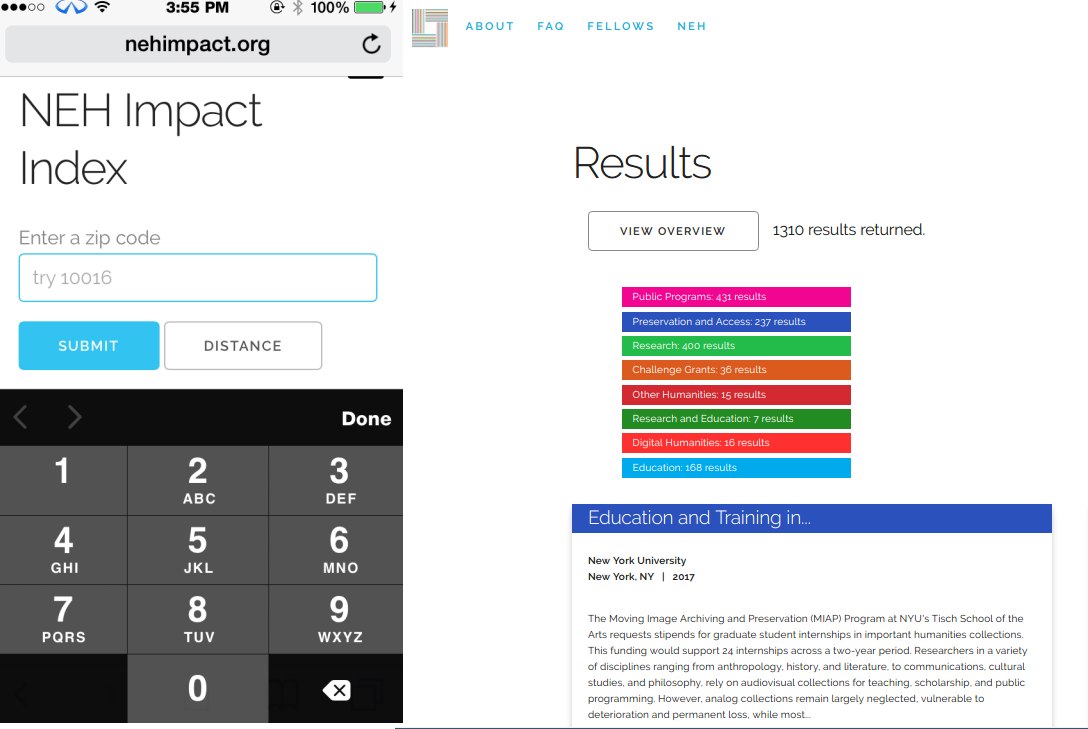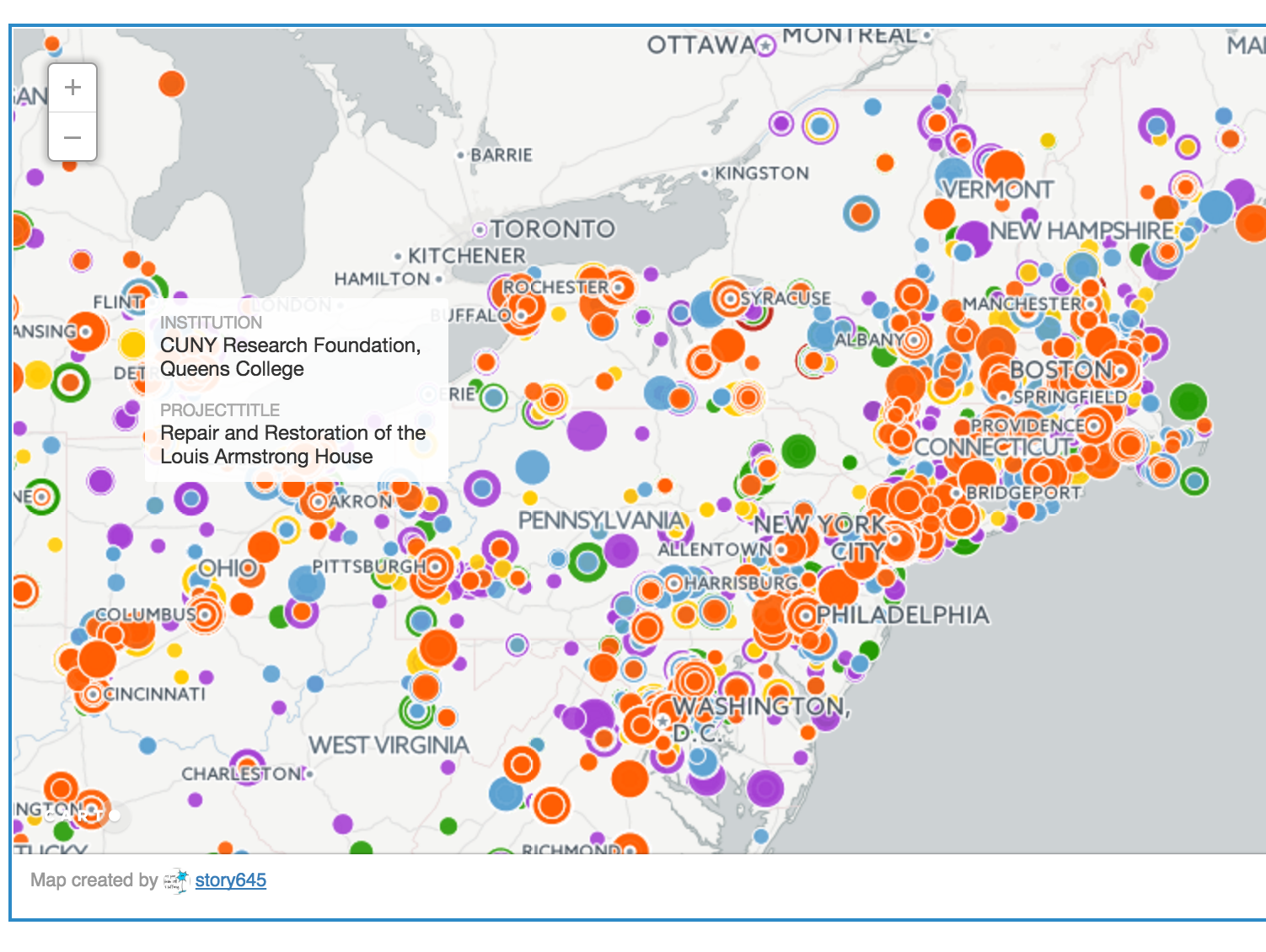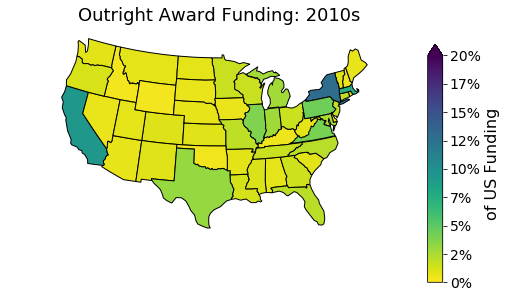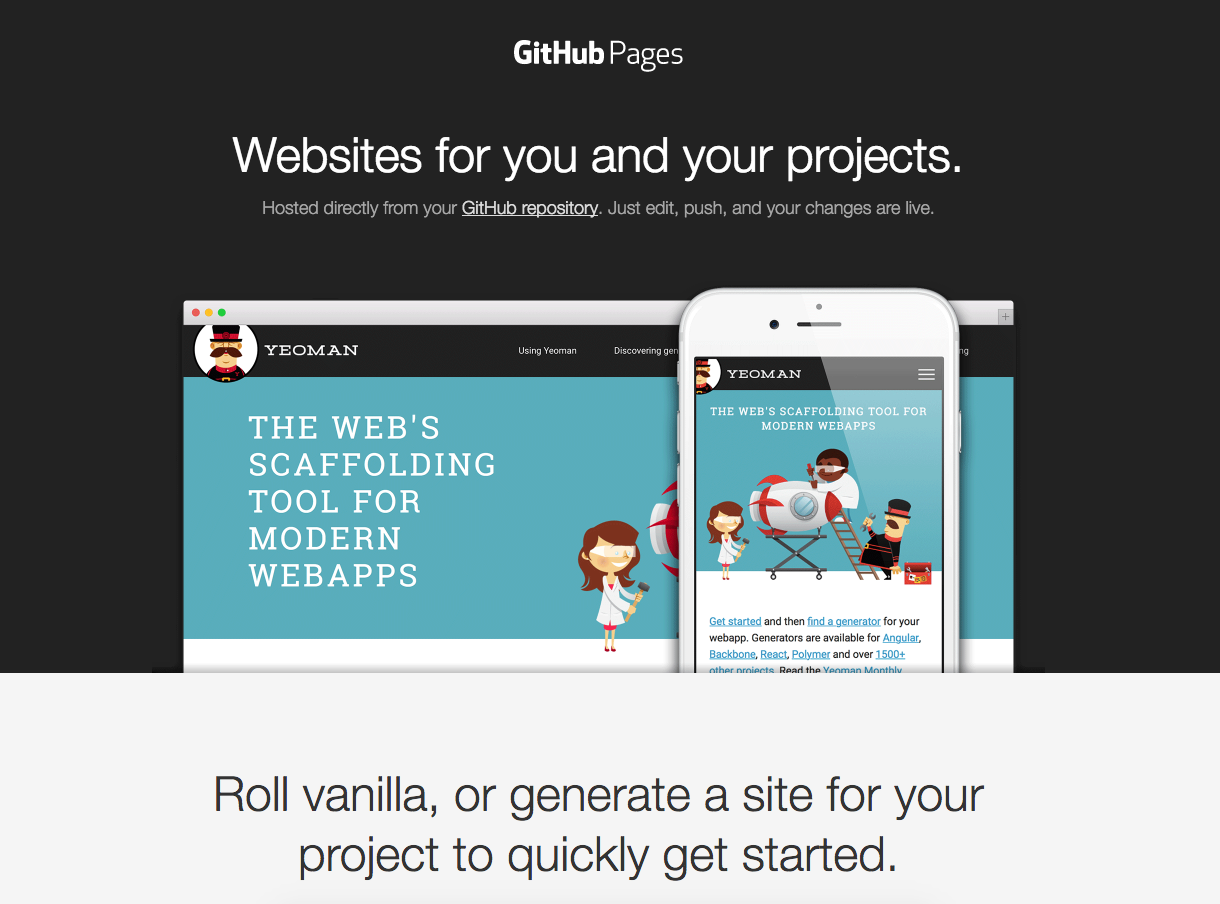
Graduate Center Digital Initiatives is proud to share the NEH Impact Index.
Recent budget proposals by the Trump administration have allocated zero funding to a number of independent federal agencies concerned with education, democracy, cultural preservation, and public-facing scholarship. Among them are the National Endowment for the Humanities (NEH), the National Endowment for the Arts (NEA), and the Corporation for Public Broadcasting (CPB), which supports NPR and PBS.
As a child, I grew up watching shows such as Sesame Street and Shining Time Station on PBS, and as an adult I regularly listen to public radio podcasts such as NPR’s Pop Culture Happy Hour and WBEZ Chicago’s This American Life. In my career as a graduate student at the GC, I’ve also had the privilege of working on an NEH-funded project, DH Box, and have consulted on two others, Social Paper and Beyond Citation. These programs and projects were, and are, non-partisan, and collectively their goal has been to make culture and scholarship—and necessarily American culture and American scholarship—more rich, more open, and more accessible to the public.
I’m convinced that, if Americans were to know more about the humanities programs and projects that are supported by the NEH, they would be more likely to stand up for an institution dedicated to preserving and advancing our culture. In an effort to show the impact the NEH has on local community, I’ve created a web app, the NEH Impact Index, that shows NEH-funded projects by geographic region and categories such as education, cultural preservation, and public programs. To try it out, enter a zip code and optionally choose a radius in which to search with the Distance button. You’ll see a list of projects and programs. The colors denote the type of program and thus the type of impact—use the View Summary button on the results page to see a breakdown of the projects and what the colors mean.
The web app was built using open data provided by the NEH combined with data adapted from the National Bureau of Economic Research. You can read more about how the project was built on the FAQ, and you can also read the code on GitHub. In addition, I’ll be posting tutorials on how to get started creating your own web app in Python using open data—check back here for the first in that series.
The NEH Impact Index was created as part of a wider effort by Graduate Center Digital Initiatives to show why the NEH is worth standing up for. This effort has included visualizations by Hannah Aizenman and Tahir Butt and writing by Jojo Karlin. We encourage anyone wishing to address similar questions through open data to reach out to us on Twitter at @cunygcdi or @DigitalFellows or by email at gc.digitalfellows@gmail.com. You can also send me a message on Twitter.
Thanks to Matt Gold, Lisa Rhody, and the Provost’s Office at the GC for supporting these efforts by the Digital Fellows. Thanks also to Stephen Zweibel (DH Box), Erin Glass (Social Paper), and Eileen Clancy (Beyond Citation) for being awesome mentors, friends, and NEH project leaders.





